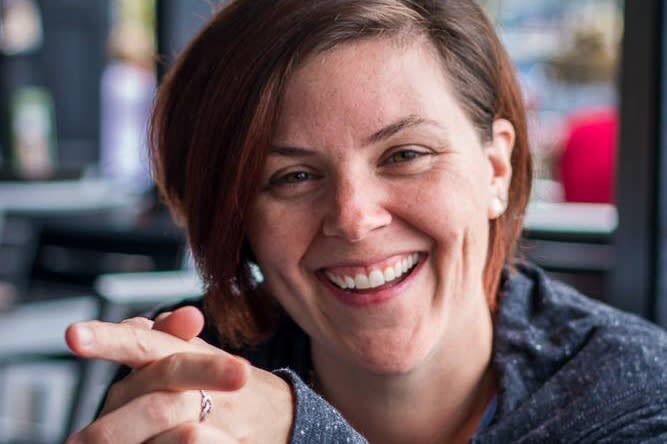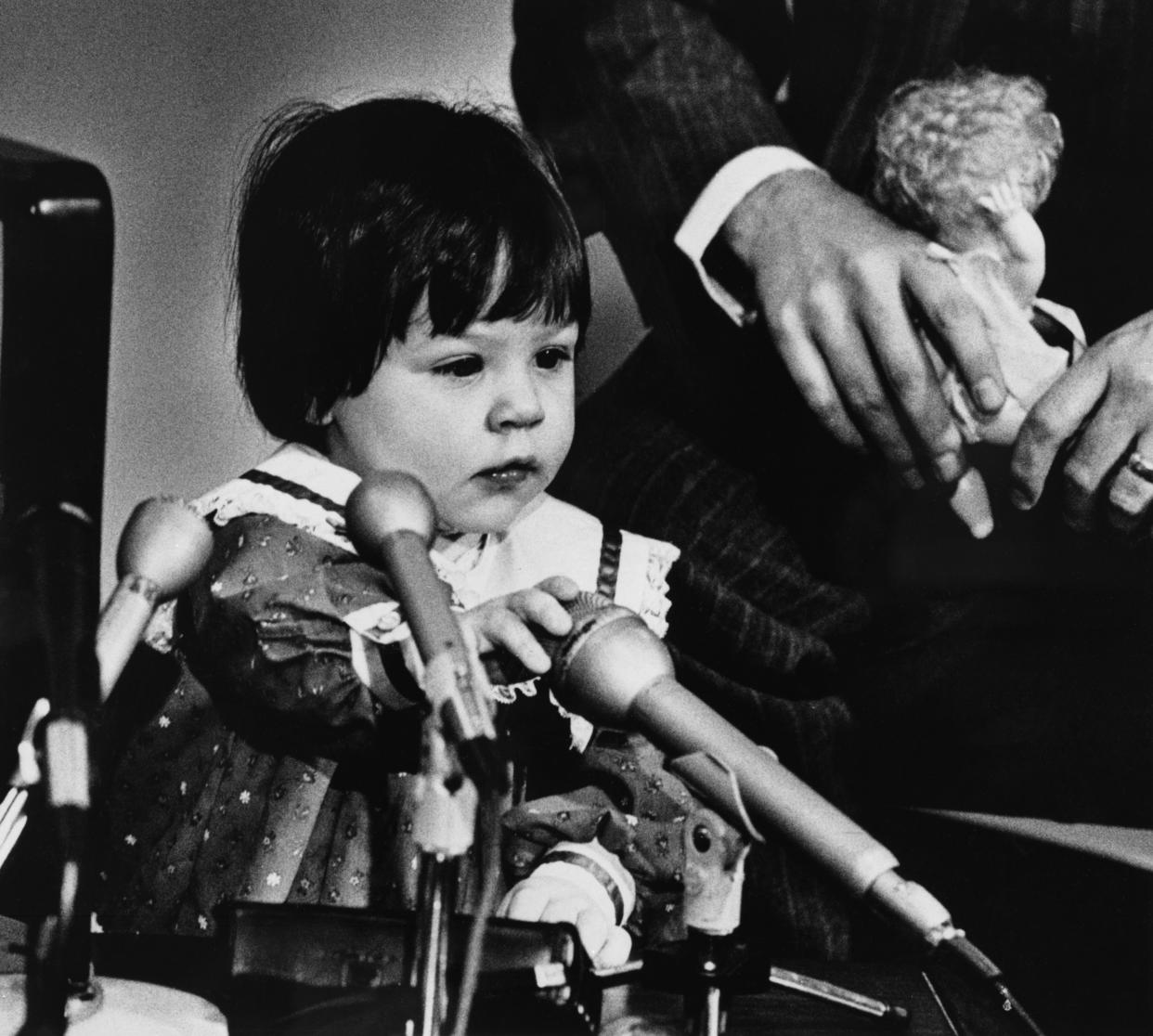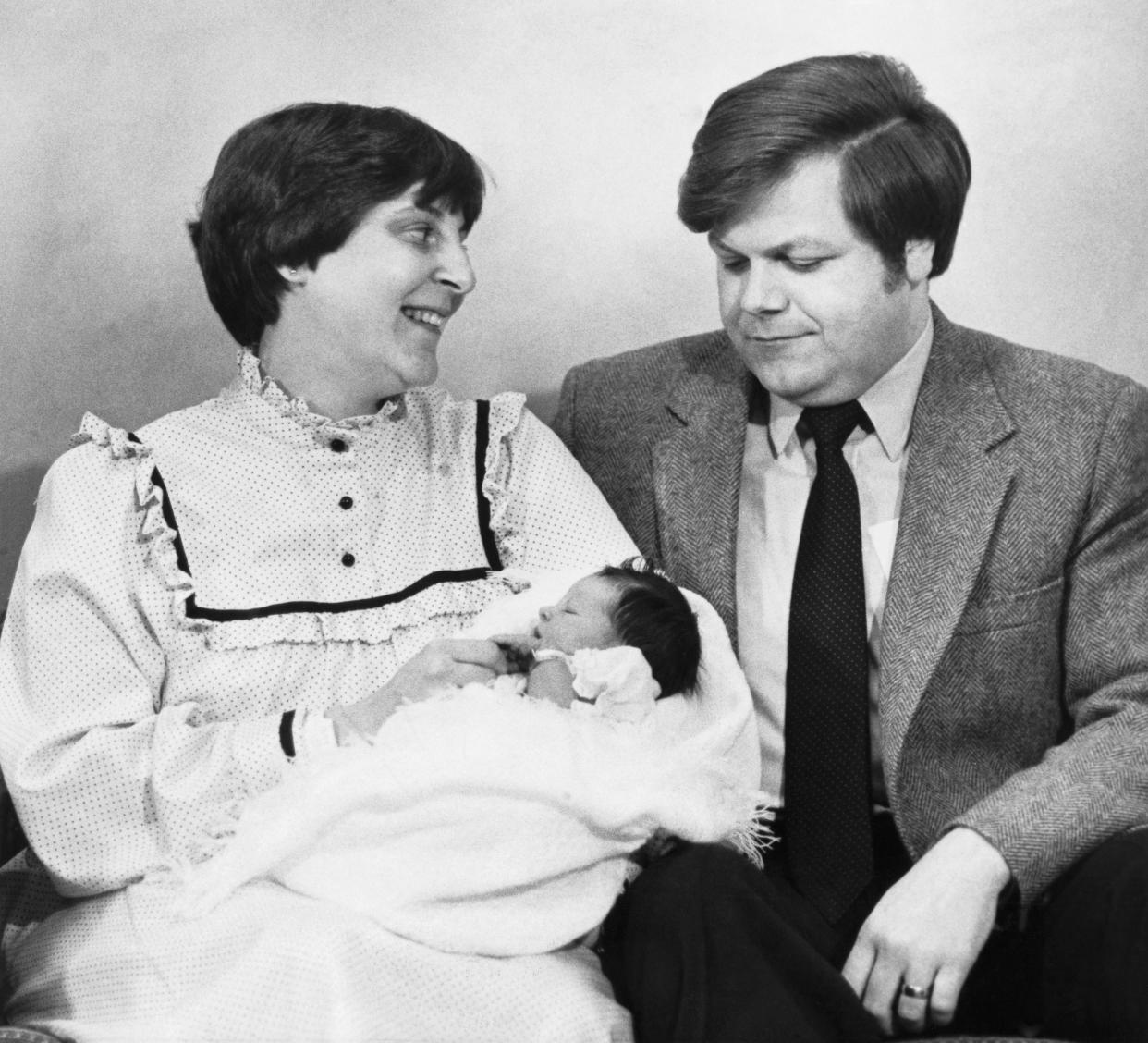As Alabama moves to protect fertility providers, the first person born by IVF in the U.S. will attend the State of the Union

The Carr family of Westminster, Mass., made headlines in 1981 when their daughter, Elizabeth, became a medical marvel: She was the first baby born through in vitro fertilization (IVF) in the United States, at a hospital in Virginia.
“The reason I was born there was because IVF was not actually allowed in Massachusetts at the time,” Elizabeth Carr, now 42 years old, told Yahoo News. Norfolk had the only fertility program “that was even attempting IVF at the time in the United States.”
While IVF has now become commonplace — with about 2% of babies born in the U.S. and more than 12 million births worldwide as a result of it — access to the fertility treatment has recently come under threat. Last month the Alabama Supreme Court ruled that frozen embryos are considered “children” under state law, which led to fertility clinics in the state pausing aspects of their IVF programs.
On Thursday, Carr will attend President Biden’s State of the Union address as a guest of Democratic Sen. Tim Kaine. Kaine says Carr’s story has “given hope to so many families struggling with infertility,” and urges protections for IVF access.
“I am completely honored and totally humbled to represent the IVF community,” Carr said of Kaine’s invitation. “I have been a passionate advocate, since as early as I could string a sentence together.”
Carr spoke with Yahoo News ahead of Thursday’s State of the Union to share more of her thoughts on the Alabama ruling and how it comes into play in the November elections.

New Alabama IVF law ‘doesn’t quite go far enough’
The Alabama Supreme Court decision that said frozen embryos created through IVF are considered children is based on the state’s 2018 Sanctity of Unborn Life Amendment that was intended to ban abortion. Following the ruling, several clinics paused certain stages of IVF treatments out of fear they and their patients would be held legally responsible if a frozen embryo were accidentally damaged in the IVF process.
“This battle is one I’ve been fighting my whole life,” Carr said. “Essentially, for 42 years, we’ve been having the same debate over where life begins.”
Carr added the Alabama ruling felt like a “personal attack” and said she was “incredibly sad, angry and frustrated” when the ruling landed last month.
“Many of us are afraid that this is kind of laying the groundwork for other states to figure out a way to essentially make IVF impossible in other states,” Carr said. “My opinion is, regardless of when you think [life begins], you should not impose your opinions on somebody else to hamper their ability to have children.”
The issue has also become a flash point on the 2024 campaign trail. Biden and former President Donald Trump agree that IVF access shouldn’t be impeded. Biden vowed to protect IVF access and sent the nation’s top health official to Alabama to meet with patients and doctors affected by the controversial decision.
Trump, meanwhile, called on Alabama lawmakers to “act quickly to find an immediate solution to preserve the availability of IVF” in the state.

Late Wednesday, Alabama passed a law that enables fertility clinics to resume IVF treatments without fear of being held liable “for the damage to or death of an embryo.” However, it does not solve the question of whether a frozen embryo created by IVF should be considered a child under state law.
Carr told Yahoo News on Thursday that she’s “very pleased” that Alabama Gov. Kay Ivey signed the legislation into law because it will allow for IVF care to continue in the state, but said it “doesn’t quite go far enough.”
“There’s definitely more work to be done to address the underlying issue of the status of embryos as a part of the IVF process, which is going to take a longer effort,” Carr said. “We all need to stay engaged in the conversation and continue to work toward resolving that.”
‘This is not a small segment of the population that uses IVF anymore’
Carr said part of the reason the Alabama ruling was so “devastating” is because IVF treatments extend way beyond people who are infertile. She pointed out that same-sex couples who want to have a child, people going through cancer treatments who want to preserve their fertility before chemotherapy, and people who want to screen for genetic diseases before having children often use IVF treatments.
“So this is not a small segment of the population that uses IVF anymore,” she said, adding that 1 in 6 people experiences infertility.
“Somebody in your circle, at some point, will probably have to access IVF. Wouldn’t you want to protect that access for them?” Carr said. “I think if we don’t protect things like IVF, entire segments of the population will feel very abandoned.”
